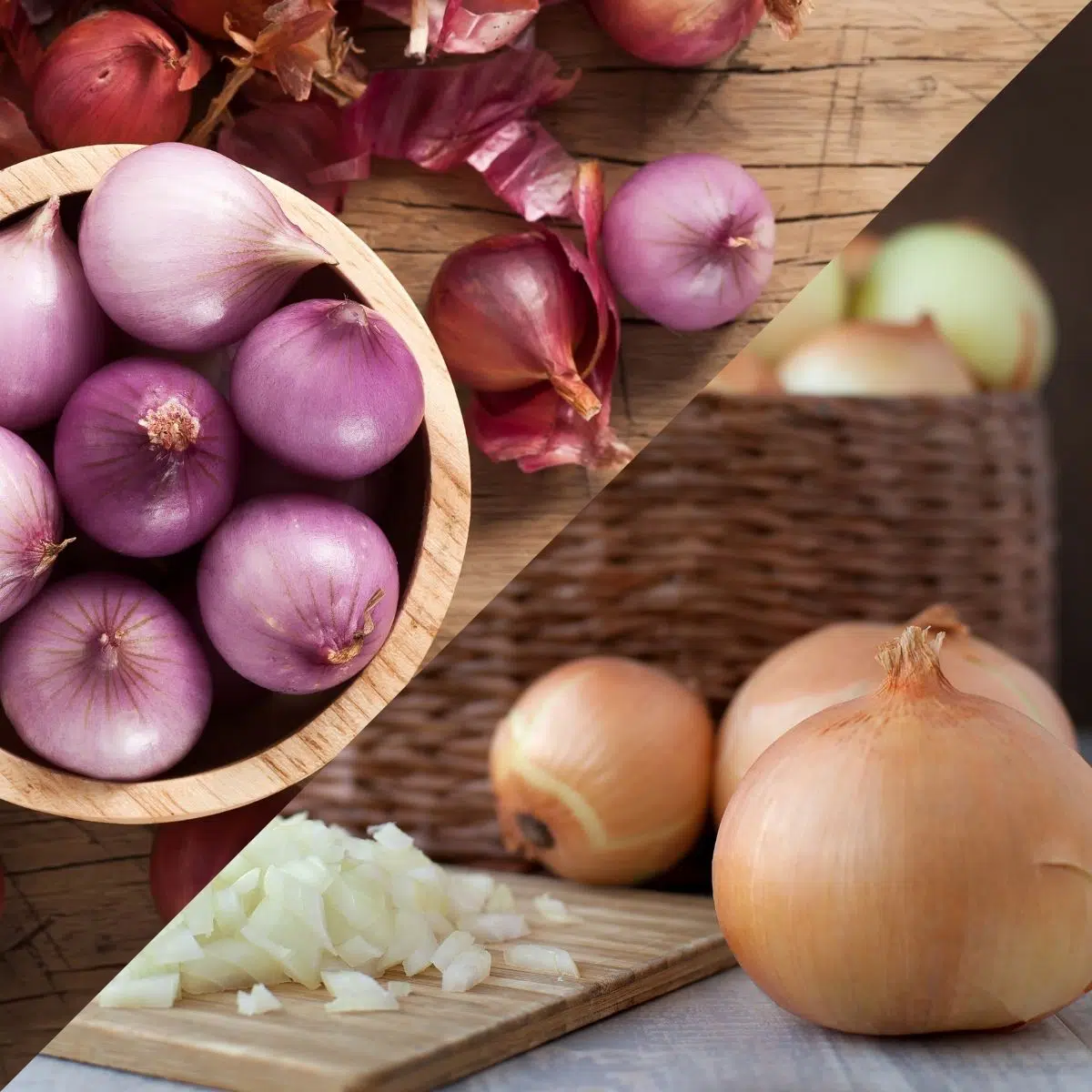Onions and shallots are both members of the Allium family, which also includes garlic, leeks, and chives. While they share similarities, there are several key differences between the two:
- Appearance:
- Onions: Onions are typically larger and have a round or bulbous shape. They can range in size from small pearl onions to large, globe-shaped ones. They have papery outer layers that can vary in color from white to yellow to red or purple.
- Shallots: Shallots are smaller and usually have an elongated shape with multiple cloves clustered together. They often have a reddish-brown or grayish skin and a pear-like shape.
- Flavor:
- Onions: Onions have a more pungent and robust flavor, especially when raw. They can range from mildly sweet to strongly astringent, depending on the type.
- Shallots: Shallots have a milder, sweeter, and more delicate flavor compared to onions. They are often described as having a subtle blend of onion and garlic flavors.
- Usage:
- Onions: Onions are widely used in cooking and can be found in a wide range of dishes around the world. They can be consumed raw in salads, sandwiches, or salsas, and they are also commonly cooked in various dishes to add flavor and aroma.
- Shallots: Shallots are prized for their refined flavor and are often used in gourmet cooking. They are frequently used in French cuisine, and they work well in dishes where a more subtle, nuanced onion flavor is desired.
- Culinary Applications:
- Onions: Onions are versatile and can be caramelized, sautéed, fried, pickled, or used raw in various recipes.
- Shallots: Shallots are often used in vinaigrettes, sauces, and reductions. They are also a popular choice for making compound butters, adding depth to dishes without overpowering other flavors.
- Substitution:
- Onions: If a recipe calls for onions and you don’t have any, you can often substitute them with shallots, but be aware that the flavor profile will be milder.
- Shallots: Substituting shallots with onions can work in many recipes, but it may result in a stronger onion flavor.
- Storage:
- Onions: Onions have a longer shelf life and can be stored in a cool, dry place for several weeks to several months.
- Shallots: Shallots have a shorter shelf life compared to onions. They should be stored in a cool, dry place, and they may last for a few weeks to a couple of months.
- Health Benefits:
- Both onions and shallots are nutritious vegetables, rich in vitamins, minerals, and antioxidants. They contain fiber, vitamin C, and various beneficial compounds that may contribute to health.
In summary, while onions and shallots belong to the same botanical family and share some similarities, they have distinct characteristics in terms of appearance, flavor, culinary applications, and storage. The choice between them in a recipe often depends on the desired flavor profile and culinary outcome.
